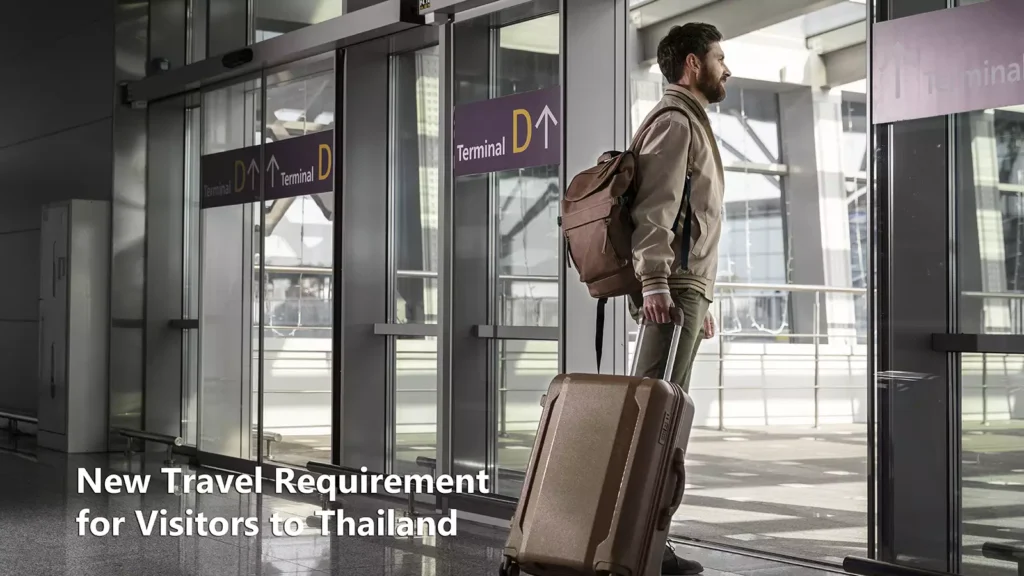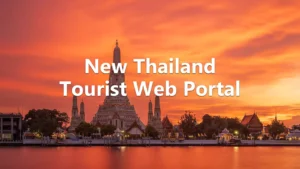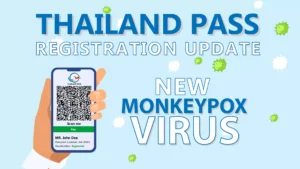On August 23, 2024, the Ministry of Foreign Affairs (MFA) in Thailand announced that they are accelerating the implementation of a new system, a new travel requirement for visitors to Thailand, that would introduce a mandatory requirement for all tourists once operational. Starting in December 2024, the Electronic Travel Authorization (ETA) system will be introduced and all foreigners looking to travel to Thailand under the visa exemption scheme will be required to enroll in it from June 2025 onwards.
The ETA was announced alongside the Thai government’s plan to expand its visa exemption and visa-on-arrival programs to include additional nationalities. Given that this will potentially lead to a massive influx of visitors to the Kingdom, the government is implementing this and other public security measures to better track foreigners without a registered visa.
What Is Thailand’s New ETA System?
Thailand isn’t the first country to introduce this program. Electronic Travel Authorization (ETA) systems are part of the immigration requirements of other countries such as the United Kingdom and Canada. According to the MFA, the ETA program enables foreigners entering visa-free to be screened before entry into Thailand, taking the burden of registering these visitors off of immigration officials.
It is hoped that this will not only improve the monitoring of these visitors but also ease congestion at immigration checkpoints. Instead of tasking the border officials with registering visa-free travelers, they will already be in the ETA system by the time they arrive, speeding up processing and shortening lines.
Thailand’s ETA follows the European Travel Information and Authorization System (ETIAS) model utilized by European Union members to reduce illegal immigration and public health risks. As with the ETIAS, the ETA will be able to automatically identify certain red flags in each traveler such as overstay records or traces of criminal activity.
Who Needs to Enroll in the ETA System?
Currently, only visa-exempted foreigners will be required to register with the ETA system, and they will have to do it each time they enter Thailand. As of the time of this writing, foreigners arriving from 93 countries can enter Thailand without a visa. This includes foreign nationals arriving from:
- Africa: Mauritius, Morocco, South Africa
- Americas: Argentina*, Brazil, Canada, Chile*, Colombia, Cuba, Dominica, Dominican Republic, Ecuador, Guatemala, Jamaica, Mexico, Panama, Peru, Trinidad and Tobago, United States, Uruguay
- East/Central Asia: Bhutan, Brunei, Cambodia, China, Hong Kong, India, Indonesia, Japan, Kazakhstan, Laos, Macao, Malaysia, Maldives, Mongolia, Myanmar*, Philippines, Singapore, South Korea, Sri Lanka, Taiwan, Uzbekistan, Vietnam
- Europe: Albania, Andorra, Austria, Belgium, Bulgaria, Croatia, Czech Republic, Denmark, Estonia, Finland, France, Georgia, Germany, Greece, Hungary, Iceland, Ireland, Italy, Kosovo, Latvia, Liechtenstein, Lithuania, Luxembourg, Malta, Monaco, Netherlands, Norway, Poland, Portugal, Romania, Russia, San Marino, Slovak Republic, Slovenia, Spain, Sweden, Switzerland, Ukraine, United Kingdom
- Middle East: Bahrain, Cyprus, Israel, Jordan, Kuwait, Oman, Qatar, Saudi Arabia, Turkey, United Arab Emirates
- Oceania: Australia, Fiji, New Zealand, Papua New Guinea, Tonga
*NOTE: Visitors from these countries will only be able to apply for ETA at Thai international airports upon arrival.
Foreign nationals currently holding a valid Thai visa such as the Thai Tourist Visa are not required to submit an ETA application, regardless of whether they are from the countries listed above or not. Foreigners holding one of the immigration documents shown below will also be exempt from needing an ETA:
- Diplomatic passports
- Official passports
- UN Laissez-Passer documents
- Border Passes
How Will Thailand’s New ETA System Function?
The ETA system is currently a work in progress and final details have yet to be released. But judging from the model it is based on and statements from the government, here’s what visitors can expect:
- Travelers can register with the ETA system before departing for Thailand or upon arrival. Airlines may ask to see proof of registration before allowing passengers to board their flight to Thailand.
- Travelers will need to submit an ETA application via the Thai E-Visa Portal.
- If the traveler arrives in Thailand with no confirmation of an ETA, they can apply at the border checkpoint but will be turned away or required to secure an alternative entry method if they are not authorized by the ETA system.
- It should take around 1 hour for the traveler to receive their ETA confirmation after submission of their application.
- Registration for ETA will be free of charge.
- Foreigners will be able to use an ETA’s QR code for faster entry by accessing automatic gates located at various immigration checkpoints all across Thailand.
Because the new ETA system has yet to be fully implemented, these details may be subject to change.
Required Documents for an ETA Application
The Thai MFA has yet to release a full list of required documents and items needed for an ETA application. However, based on the documents needed to qualify under a visa exemption scheme, applicants will likely be expected to provide the following:
- A valid passport
- Flight itinerary displaying details of tickets into and out of Thailand
- Proof of accommodation in Thailand (such as their hotel address and reservation details)
- Proof of sufficient funds (single travelers need at least 10,000 baht or 20,000 baht if they are arriving with family)
Note, that this list is subject to change once the ETA system is fully operational. The re-implementation of the Thailand Pass system due to the presence of Monkeypox might mean that travelers may require proof of health insurance or vaccination documents in the future.
Avoid the Hassle of the ETA Altogether
The new ETA system might cause some inconvenience when entering Thailand, as visa-exempted travelers will need to apply for one each time they arrive. If you plan on traveling to Thailand frequently, consider applying for a long-term Thai visa to avoid having to waste time registering for an ETA each time you want to cross the border. Examples of convenient long-term tourist visas that are easy to qualify for include the Thailand Elite Visa and Destination Thailand Visa (DTV).
If you are interested in securing a Thai visa, contact Siam Legal for assistance. As a full-service law firm and visa consultancy with over 20 years of experience, our Thai visa team has the qualifications and knowledge to guide you step-by-step through your application, enabling you to acquire your visa as swiftly and efficiently as possible. Our services ensure you can enjoy all that Thailand has to offer free from immigration delays and visa worries.










































